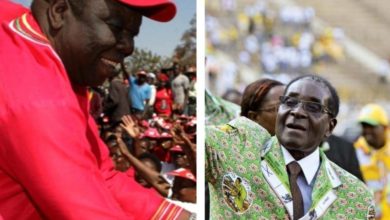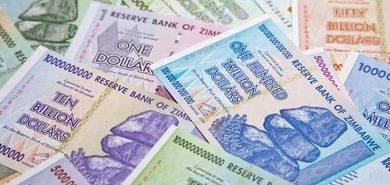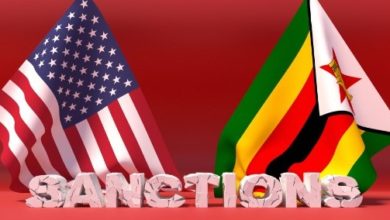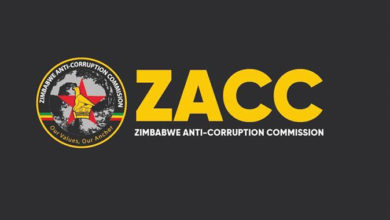The intriguing Book of Zimbabwe – Part 7, What with the land?

The people were becoming restless
Increasing inequality, exclusion and disaffection in urban and rural areas especially as it related to access to arable land played a role in intensifying opposition to ZANU PF. As a result, the party’s desperation to regain voter support, led to the problematic populist measures that were adopted in the later 1990s. One such policy measure was the fast-track land redistribution program. When the new governing regime came into power in 1980, it quickly introduced socialist inclined redistributive policies to reduce inequalities. Land reform was one of those policies with the exception that land was acquired on a willing buyer, willing seller basis. In that regard, the land acquisition and redistribution program was well received and supported both locally and internationally. However, the pace was slow and dissatisfactory for many of the 7 million blacks. By the end of the first decade of independence, only about 3 million hectares from the targeted 8 million had been acquired and redistributed. This was despite British and US financial support towards the program. Government was criticised for having diverted funds allocated to it for land redistribution to other purposes such as defence spending. This, in part, resulted in a reduction of the international funding for land redistribution. For their part, the Government blamed financial constraints and droughts for the slow pace of land acquisition and redistribution. Whether an act of sabotage or resistance by the whites whose land was targeted for acquisition, it did not help that land prices continued to soar against the backdrop of decreased financial aid.

In 1979, when negotiating parties met at Lancaster House in London to negotiate a cease-fire and to draft a constitution for Zimbabwe’s independence, the question of land was posed but not addressed to the satisfaction of the Patriotic Front led by Joshua Nkomo and Robert Mugabe. In their list of considerations presented as opening remarks to the 14-week meeting, question number nine, “What will be the future of the people’s land?” was later not directly dealt with in the final Lancaster House Agreement. Instead, the agreement added protection clauses that emphasised property rights and an additional sunset clause which disallowed a change to the laws for at least ten years after independence unless unanimously agreed to by the House of Assembly. Read together, these provisions made it practically impossible to change the constitution on these matters because already, 20 parliamentary seats were reserved for the white minority constituents and these Parliamentarians were unlikely to vote for constitutional changes that could lead to them being dispossessed of what they considered to be “their” land. For reference, the relevant clauses from the Lancaster House Agreement, are quoted below. (Sourced from: https://sas-space.sas.ac.uk/)
The Freedom from Deprivation of Property was part of the Declaration of Rights proposed and agreed to by the negotiating parties. It was part of a mix of provisions that would prevent immediate land take-overs and a potential mass exodus of whites from the country. A mass exit of whites, who were mostly of British heritage would have been hugely challenging for the United Kingdom government to manage as they were estimated to be as many as 220,000 of them at the time, 90,000 of whom were adults.
Freedom from Deprivation of Property
Exactly what were these protective provisions and what did they say? Below the Freedom from Deprivation of Property is provided to help understand the depth of the problem with the land which was at the core of the protracted disputation between the races.
1. Every person will be protected from having his property compulsorily acquired except when the acquisition is in the interests of defence, public safety, public order, public morality, public health, town and country planning, the development or utilisation of that or other property in such a manner as to promote the public benefit or, in the case of under-utilised land, settlement of land for agricultural purposes. When property is wanted for one of these purposes, its acquisition will be lawful only on condition that the law provides for the prompt payment of adequate compensation and, where the acquisition is contested, that a court order is obtained. A person whose property is so acquired will be guaranteed the right of access to the High Court to determine the amount of compensation.

2. Exception will be made for the taking of possession of property during a period of public emergency.
3. Compensation paid in respect of loss of land to anyone who is a citizen of or ordinarily resident in Zimbabwe (or to a company the majority of whose shareholders are such persons) will, within a reasonable time, be remittable to any country outside Zimbabwe, free from any deduction, tax or charge in respect of its remission, but subject always to – a. its attachment, by order of a court, in connection with civil proceedings; and
b. reasonable restrictions as to the manner in which the payment is to be remitted.
4. The Constitution will, on the same basis as in other Declarations of Rights, make clear that a number of transactions which might be considered to involve an element of compulsory acquisition will not be so regarded for the purposes of the Declaration of Rights.
5. It will be made clear, for the avoidance of doubt, that the property covered by this constitutional guarantee includes rights, whether vested or contingent, of individuals to receive benefits under a law, contract or scheme relating to the payment of pension benefits.
The agreement also defined which classes of people were to be considered Zimbabweans, effectively ensuring that the protection clauses covered both the indigenous people as well as Zimbabweans of European and Asian descent.
Citizenship
The protections of the Freedom from Deprivation of Property as well as the Sunset Clause were guaranteed to citizens of Zimbabwe. But whom did the constitution say were citizens? This is explained next.
1. Every person who was a citizen of Rhodesia immediately before Independence will automatically become a citizen of Zimbabwe on Independence (by birth, descent or registration, as the case may be, according to his former status). Every person who, immediately before Independence, possessed such qualifications that the relevant authority would, upon application duly made, have registered him as a citizen of Rhodesia, will be entitled to make application in the prescribed manner at any time during the first five years after Independence and it will be incumbent upon the competent authority to grant that application and cause him to be registered as a citizen of Zimbabwe.

2. Every person who is born in Zimbabwe after Independence (other than the child of a diplomat accredited to Zimbabwe, of an enemy alien, of a person unlawfully in Zimbabwe or of a non-citizen not ordinarily resident in Zimbabwe) will become a citizen of Zimbabwe by birth. Every person who is born outside Zimbabwe after Independence will become a citizen of Zimbabwe by birth if at the time of his birth his father (or if he is illegitmate [sic], his mother) is a citizen of Zimbabwe but resident outside Zimbabwe in the service of the Government and his birth is registered in Zimbabwe.
3. Every person who is born outside Zimbabwe after Independence but whose father (or, if he is illegitimate, whose mother) is then a citizen of Zimbabwe by birth or registration will himself become a citizen of Zimbabwe by descent.
4. Any woman who is or has been married to a person who is or was at any time during the subsistence of the marriage a citizen of Zimbabwe (or would but for his death have automatically become a citizen of Zimbabwe at Independence) will, on making application in the prescribed manner, be entitled to be registered as a citizen of Zimbabwe.
5. Any person one of whose parents is a citizen of Zimbabwe at the date of his application will be entitled, on making application in the prescribed manner, to be registered as a citizen of Zimbabwe. If the person is a minor, the application may be made on his behalf by his parent or guardian. Provision will be made for adopted children.
6. Parliament will be empowered to make provision:-
a. for conferring citizenship of Zimbabwe by registration on persons in cases other than those described above;
b. for taking away the citizenship of a person who has acquired it otherwise than by birth or descent, provided that the loss of his citizenship will not render him stateless;
c. for the renunciation by any person of his citizenship of Zimbabwe; and
d. for regulating the procedure relating to the acquisition and loss of citizenship of Zimbabwe.
7. Provision will be included which permits citizens of Zimbabwe to retain their citizenship of other states.
8. Provision will be made on Independence for the resumption of citizenship by persons who have forfeited it or been deprived of it since 11 November 1965.
The sunset clause essentially worked to prevent amendments of the enabling laws that offered protection to people of British descent, which is what the British authorities wanted to guarantee for as long as was possible.
The sunset clause
Finally, Sunset Clause extended the tenure for settler farmers by at least 10 years after the attainment of independence. It provided that;
“The protective provisions of the Declaration of Rights will for a period of ten years be amendable only by the unanimous vote of the House of Assembly and, subject to paragraph 27, the votes of not less than two thirds of the members of the Senate. But a Bill which amends the Declaration of Rights in such a way as to reduce the qualifications or exceptions to those provisions will be subject to the procedure in paragraph 28 above.”

Although the Patriotic Front understood the future constraints that would come with agreeing to these provisions, they, just as the other negotiating parties, were anxious to bring the seven-year liberation war to an end to prevent further bloodshed and suffering back home. Indeed, it is reported that Robert Mugabe faced intense pressure to sign the agreement even though he was dissatisfied with the manner in which the land question had been left unresolved. Similarly, Lord Carrington, who was then the British Foreign and Commonwealth Secretary, and who served as Chair at the Lancaster House Conference, was pressured to commit the British Government to funding a post-independence land acquisition program. The Patriotic Front, notably Mugabe, had said a Zimbabwean government would seek to compulsorily acquire land from whites for redistribution to blacks with no compensation. Under the pressure of the negotiators and that of international media that had developed a keen interest on the outcome of the Conference, Lord Carrington reportedly capitulated and announced that the British would compensate white citizens for any land acquired for the purposes of resettling landless blacks. The United States, through its Ambassador to London, Kingman Brewster Jr., also pledged “substantial” financial support for post-independence land reform. Importantly, these pledges do not appear in the signed Lancaster House Agreement and no reference document has thus far been easily accessible. This was always going to be a problem, and indeed it later became the thorniest issue for Zimbabwe in the early 2000s.
Subscribe and follow omnizim.com to find out what happens next in future instalments of the Book of Zimbabwe





I was excited to uncover this site. I need to to thank you for your time for this particularly wonderful read!! I definitely savored every part of it and I have you saved to fav to see new stuff in your site.
Thank you for your support.